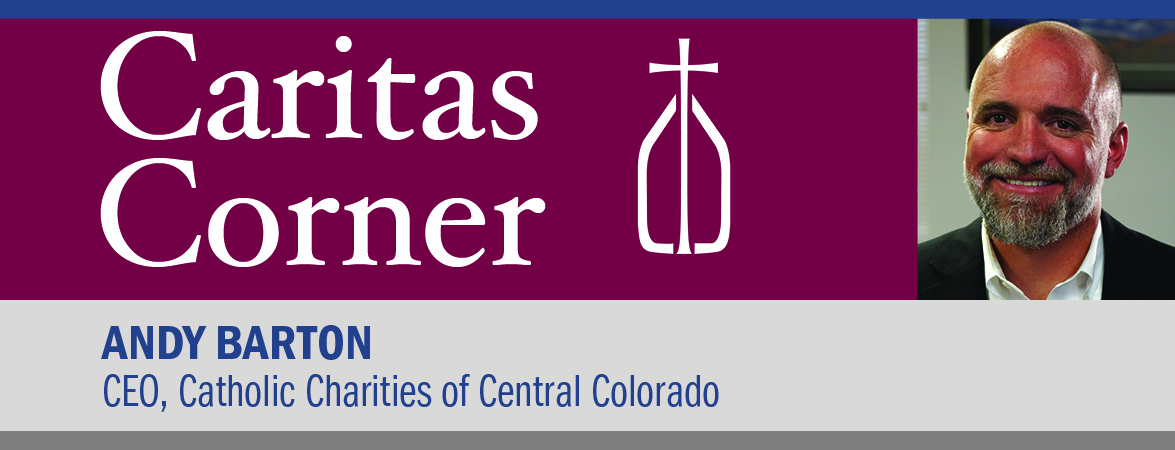CARITAS CORNER: The Gift of an Orange on Christmas
By Andy Barton

One Christmas day, 15 years ago, I sat next to my wife’s grandmother, Marie Vigil, at a family gathering as my kids and their cousins tore through presents with delight and awe. She watched her family with a smile, laughing occasionally at a child’s outburst of joy and parents’ attempt to maintain order.
“Is this what Christmas was like when you were young?” I asked. She laughed, “Christmas is always the same, but when I was young, my father would get to stay home and our gift would be an orange.”
Grandma Vigil grew up in the coal mining towns of Southern Colorado in the 1930s. Her father worked 12-hour days, six days a week, in the blackness of various mines around Trinidad to support his family. There was much wealth to be made in coal, but not by the men who dug it out of the ground. Like most children in those coal towns, Grandma Vigil grew up in poverty.
The gift of a Christmas orange was not unusual for that time and place. According to a 2018 Smithsonian Magazine article, the tradition began in 19th-century Europe, where an orange was a rare privilege and a traditional gift among families with few means. The brightly-colored fruit could be reimagined as a bag of gold left by the Bishop of Myra, or St. Nicholas, like the ones he left for dowries of the three poor sisters.
By the beginning of the 20th century, the tradition found its way into the diverse and poor immigrant communities of the Colorado coal fields and into Grandma Vigil’s home.
St. Oscar Romero wrote: “No one can celebrate a genuine Christmas without being truly poor. The self-sufficient, the proud, those who, because they have everything, look down on others, those who have no need even of God — for them there will be no Christmas. Only the poor, the hungry, those who need someone to come on their behalf, will have that someone. That someone is God. Emmanuel, God-with-us. Without poverty of spirit there can be no abundance of God.”
The birth of Christ was a sign of hope for people who were suffering. Prophesized by Isaiah, “The people who walked in darkness have seen a great light; Upon those who lived in a land of gloom a light has shone.” (Is 9:2) Those in financial poverty know that darkness all too well but even if we are fortunate enough to be financially stable, that “land of gloom” might resonate today. As we move toward Christmas in 2022, our world can make us feel a poverty of spirit. War rages in the Ukraine, inflation soars, and our nation remains divided politically and philosophically. Acknowledging the darkness of our time may allow us to experience Christmas more fully.
As Grandma Vigil watched her great-grandchildren open one gift after another on that Christmas Day many years ago, there was no judgment of a generation that was growing up with comforts she could not have fathomed as a little girl. Christmas remained a time to celebrate the joy and hope in the coming of the Savior, Jesus Christ. For a woman who had grown up with nothing, the abundance of God was better than any gift: may we all be as fortunate this Christmas.
972